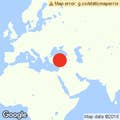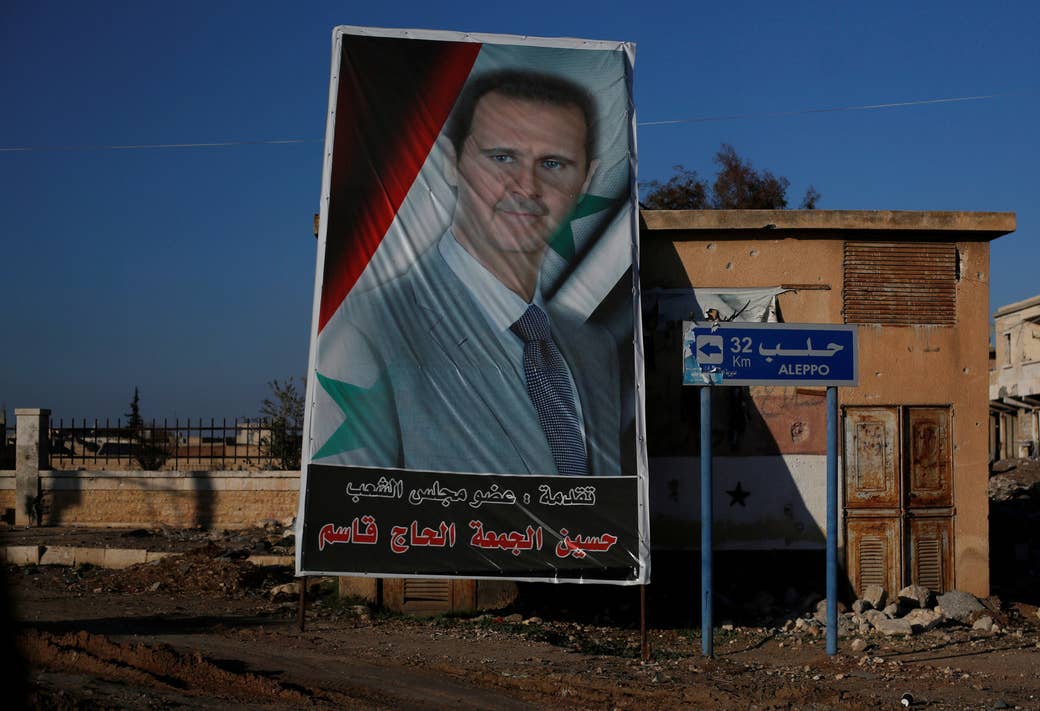
BEIRUT — The dead lay rotting in the streets of Aleppo, and in the buildings crushed by bombs dropped from warplanes. Crying children could not be quieted. Food had grown scarce. The fighters fending off the regime’s advances stared at defeat as their meager ammunition stocks ran out. Civilians huddled together in the early-morning cold. As they waited for death or capture by the regime, heavy rain fell.
“The situation is very bad; it cannot be described,” Mohammed al-Sheikh, an activist and spokesman for one of the Free Syrian Army units inside eastern Aleppo, told BuzzFeed News early Tuesday morning. He spoke over a shaky WhatsApp connection as a collection of Syrian forces and foreign militias loyal to Bashar al-Assad closed in on him in one of the last remaining rebel-held enclaves of the besieged half of Aleppo.
“It's a terrible feeling to see the injured and not being able to offer a helping hand,” he said, “to hear babies crying and not being able to warm them up or put them in a safe place, to see families in the streets and not being able to shelter them.”
Across the Queiq River, which has served as a rough dividing line between the city’s rebel-held east and regime-controlled west for nearly five years, celebrations erupted. Joyous Assad loyalists honked their car horns and took to the streets. Russian state media reported Syrian regime control over 98% of Aleppo, with rebels hemmed into an area of less than two square miles.
Assad’s imminent takeover of the country’s largest city and commercial capital gives him and his backers a huge victory but complicates the war for just about everybody else, including the United States. It will further embolden the regime to take on rebels in other enclaves around the country — these could include the Turkish-backed moderate rebel groups in the north of Aleppo province and US-backed Kurds fighting ISIS in the country’s northeast. It will likely prompt further displacement of Syrians and encourage those in neighboring countries to abandon hopes of a speedy return, increasing the flood of refugees into a Europe already veering to the right in part over immigration worries.
Aleppo’s fall marks a geostrategic victory for the Iranian-led, mostly Shiite Muslim camp that includes Lebanon’s Hezbollah and other Middle East state and non-state actors, and a defeat for the Sunni bloc led by Saudi Arabia.
“Aleppo is liberated,” declared a banner headline on the front page of Tehran’s hard-line Jomhouri Eslami newspaper. “Aleppo's liberation is a huge disgrace to terrorists and their Arab and Western supporters.”
Aleppo’s plight also encompasses what many critics regard as the West’s policy and moral failure on Syria. World powers including the US, France, and the UK originally backed the rebels who fought against Assad’s dictatorship and sought to defend opponents of the regime. But the Western countries eventually turned away from them over worries about their increasingly Islamist character and the possibility of a confrontation with Russia, which has for decades considered Syria as part of its sphere of influence. For Moscow, which forcefully intervened in the Syrian war on behalf of the regime 14 months ago, the fall of eastern Aleppo is the latest international victory in a year that has included the election in the US of Donald Trump, who has openly praised Russia’s leadership and promised to end all support to rebels.
The takeover of Aleppo will give a big boost to the jihadi groups that are fighting the regime, including ISIS, which took advantage of the Russian and pro-regime forces’ focus on Aleppo to regain control of the city of Palmyra. The takeover delivered a blow to both Damascus and Moscow, which famously staged a concert in the ancient city when pro-Assad forces recaptured it earlier this summer. But even a fresh surge by ISIS could prove ultimately advantageous to a regime that has long sought to posit the conflict as one between Assad’s self-styled secular rule and Islamist guerrillas tied to foreign jihadi networks, including Jabhat Fatah al-Sham, the former al-Qaeda–linked rebel group previously known as Jabhat al-Nusra. The group, along with the more moderate jihadis of Ahrar al-Sham, controls much of Idlib province and continues to battle the regime.
“For the last five years, no one could beat Nusra,” said Nawar Oliver, a Syrian analyst at the Omran Institute in Istanbul. “Now they will become even more powerful. Now, the strongest faction is Jabhat al-Nusra, and number two is Ahrar al-Sham.”
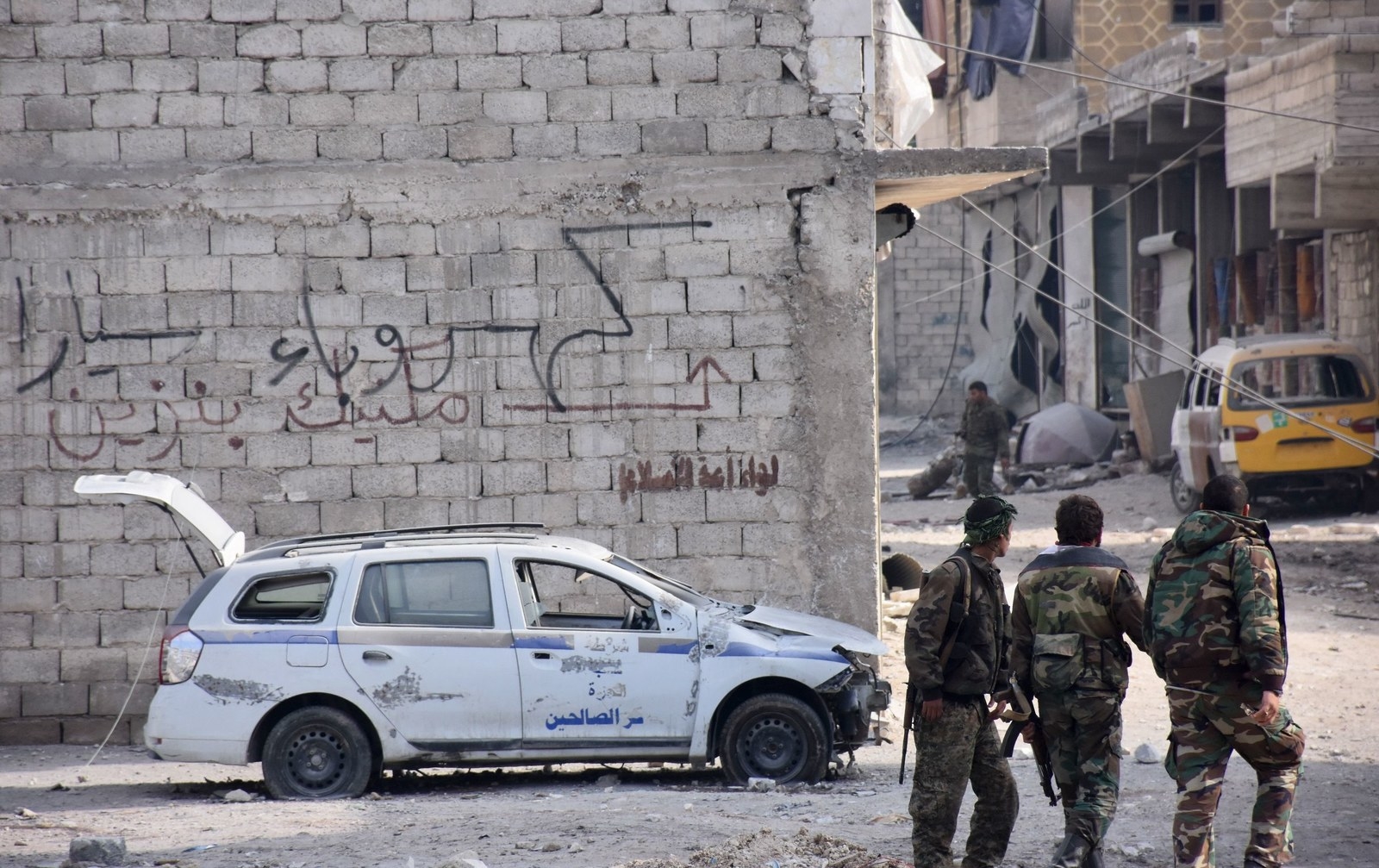
The battle for Aleppo marked new depths of depravity in warfare. The Syrian regime and its Russian allies repeatedly bombed hospitals, bakeries, and schools, dropping explosives-laden barrel bombs and multi-ton bunker busters on residential neighborhoods, forcing the city to submit by knocking out the pillars of civilian life.
“What’s happening is unbelievable,” said Milad Shihabi, a Syrian photojournalist in Aleppo, as the bombs dropped over the weekend. “I don’t think that there has been a hospital ever that received over 600 wounded and 81 killed in less than six hours.”
The fate of tens of thousands of people still trapped inside eastern Aleppo hung in the balance. Families escaping other parts of the city for the last rebel-held enclave sought shelter in damaged homes and scrounged for provisions.
One Aleppo-based commander of the Lebanese militia Hezbollah told BuzzFeed News that civilians and even rebel fighters who hand in their weapons and sign a pledge never to take up arms against the regime will be free to live in regime-controlled areas. “A lot of civilians do come to the rebel side, and a lot of rebels do turn in their guns, but a lot also get killed when they try to escape,” he said, speaking on the condition he not be named, because he was not authorized to speak to the media.
Briefing on #Syria: Deeply disturbing reports that numerous bodies were lying in the streets… https://t.co/bc2275xe9B
On Tuesday morning, humanitarian organizations voiced grave concerns about the fate of civilians still trapped inside the city. Reports of mass shootings emerged. The spokesman for the UN’s office on human rights cited reports "corroborated by multiple reliable sources" that at least 82 civilians, including 13 children and 11 women, had been shot dead by pro-Assad gunmen. "Civilians have paid a brutal price during this conflict, and we are filled with the deepest foreboding for those who remain in this last hellish corner of opposition-held eastern Aleppo," Rupert Colville, the spokesman, said in a statement.
Photos circulating on social media showed large numbers of people reportedly captured by pro-regime forces, possibly to be sent to Assad’s prisons, where human rights groups have documented grotesque conditions. As regime forces approached the last rebel-held enclave, the International Committee of the Red Cross on Tuesday issued a plea to spare civilian life.
“As the battle reaches new peaks and the area is plunged into chaos, thousands with no part in the violence have literally nowhere safe to run,” the statement read. “A deepening humanitarian catastrophe and further loss of life can be averted only if the basic rules of warfare — and of humanity — are applied.”
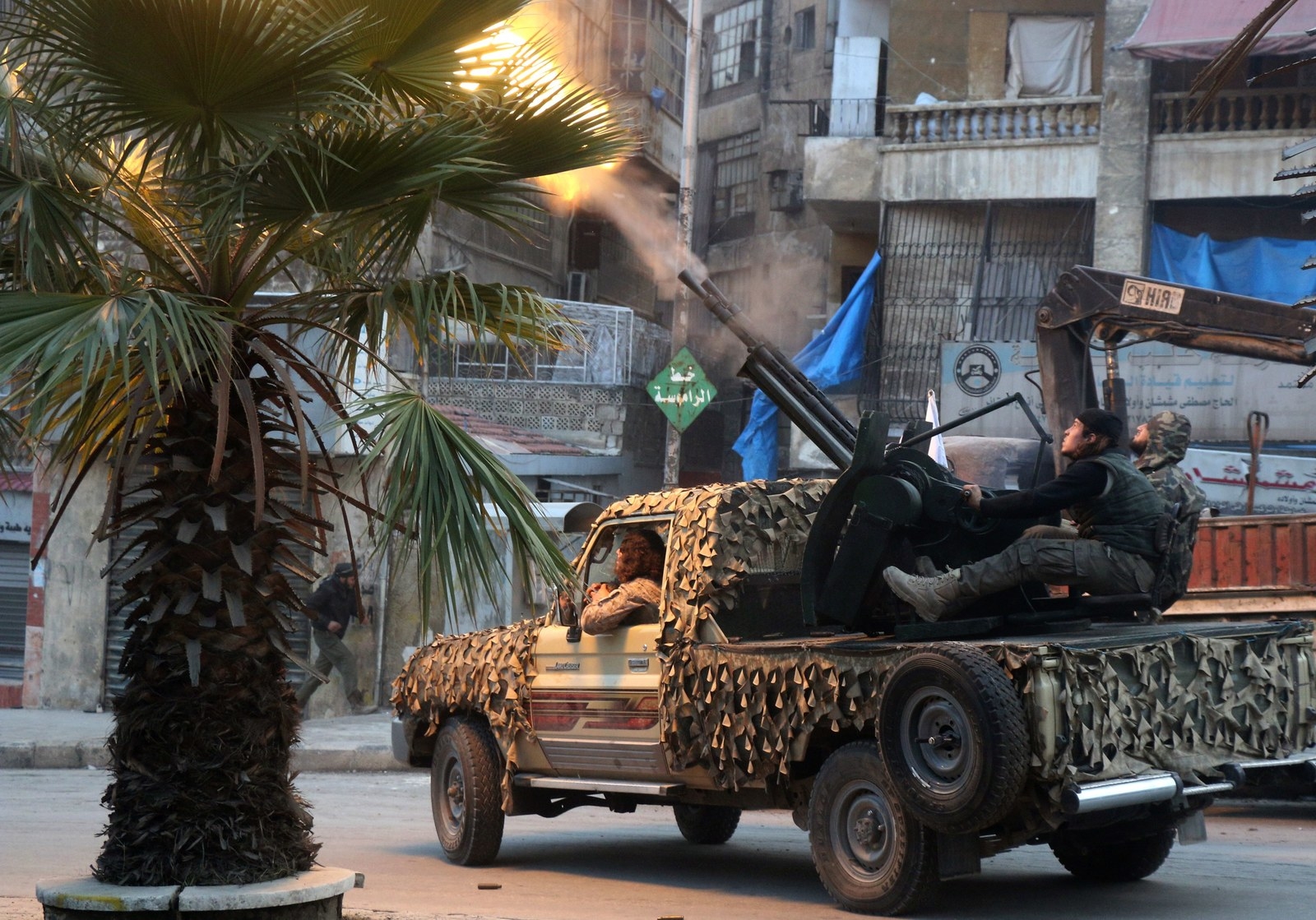
A coalition of Syrian rebels from the countryside took over eastern Aleppo in a grinding summer 2012 offensive. At first, the enclave became a haven for the Syrian revolution. Foreign journalists flocked there and local media and civil society groups sprouted. A major Syrian city for the first time in decades began to manage its own affairs without the regime in Damascus enforcing its will on them. But the defeat in Aleppo also encapsulates many of the Syrian opposition’s grave military and political missteps from the beginning of the 2011 uprising.
Largely moderate rebels allowed the city to be infiltrated by hardline Islamist fighters, who set up Islamic courts and began imposing Islamic law. The rebel groups squabbled incessantly among themselves, sometimes dividing, redividing, and rebranding themselves into a nearly comical kaleidoscope of brigades, divisions, and battalions.
“The number of factions was a negative thing,” Moataz Mahli, a Syrian activist in Aleppo, told BuzzFeed News. “It allowed the radical groups to take the lead. If I want to count all the factions in Syria, it will be over 100, and at least 50 factions in Idlib and Aleppo.”
Syrian rebels in late 2013 and 2014 cut off the road between Damascus and western Aleppo and at one point besieged the airport. But their divisions and lack of leadership meant they couldn’t capitalize on their superior numbers and morale to take over western Aleppo, and they slowly started losing ground to pro-regime forces.
Over the last few years, Syrian opposition politicians and rebels antagonized and fought Syria's Kurds, insisting on a version of Arab national identity unacceptable to a long-oppressed ethnic minority that could have been an ally in the fight against Assad.
The rebels inside the city also overestimated their ability to hold off the regime. They failed to put up barriers and proper defenses or build tunnels to access the areas of the city they controlled, perhaps soothed by their early battlefield victories and the regime’s depleted human and material resources.
"They used warplanes with banned weapons such as chlorine and napalm and phosphorus. That’s what tilted the balance of the fight and made the rebels helpless."
In early 2014, Syrian rebels became embroiled in an all-out war against ISIS that pulled away manpower, weapons, and attention from Aleppo. The war with ISIS couldn’t be helped. But Syrian rebels originally welcomed the group into their midst as another faction, tolerating their excesses and propensity to recruit foreign fighters.
Rebels relied heavily on foreign backers, including Saudi Arabia, Qatar, and Turkey, instead of creating their own flows of ammunition and wealth. “The opposition leaders in east Aleppo at that beginning didn’t come from military background; they were businesspeople,” said Oliver.
Emboldened by a string of early victories against pro-regime forces after Russia intervened in September 2015, rebels failed to see the danger of Moscow’s interest in Syria and for months batted away any kind of potential deal. Meanwhile, Russia used increasingly ferocious and lethal weapons. According to the Institute for the Study of War, Russia dramatically upped airstrikes against eastern Aleppo beginning in late November this year, allowing pro-regime ground forces to capture several key neighborhoods while forcing rebel fighters to escape to more open areas of the city that made them vulnerable to attack.
“There was an inequality of forces between the rebels and Russia,” said Abdul-Hamid al-Bakri, a Syrian activist in Aleppo. “They used warplanes with banned weapons such as chlorine and napalm and phosphorus. That’s what tilted the balance of the fight and made the rebels helpless.”
Despite the mistakes and the ferocity of the Russian air campaign, victory for Assad’s camp came about only after a wide array of international and Syrian forces gelled together. In addition to the Russian air campaign and the worn remnants of Assad’s regular armed forces, Iranian military advisers, Hezbollah fighters, Iraqi and Afghan militiamen, Syrian-Palestinian armed groups, and other militias fought the rebels, as well as Syrian Kurds who controlled one Aleppo district.
“When you see the terrible situation in Aleppo, you say it’s amazing they lasted this long,” said Assad al-Hanna, a spokesman for the Free Syrian Army who is based in Istanbul but traveled regularly to Aleppo before it fell under siege late last summer.
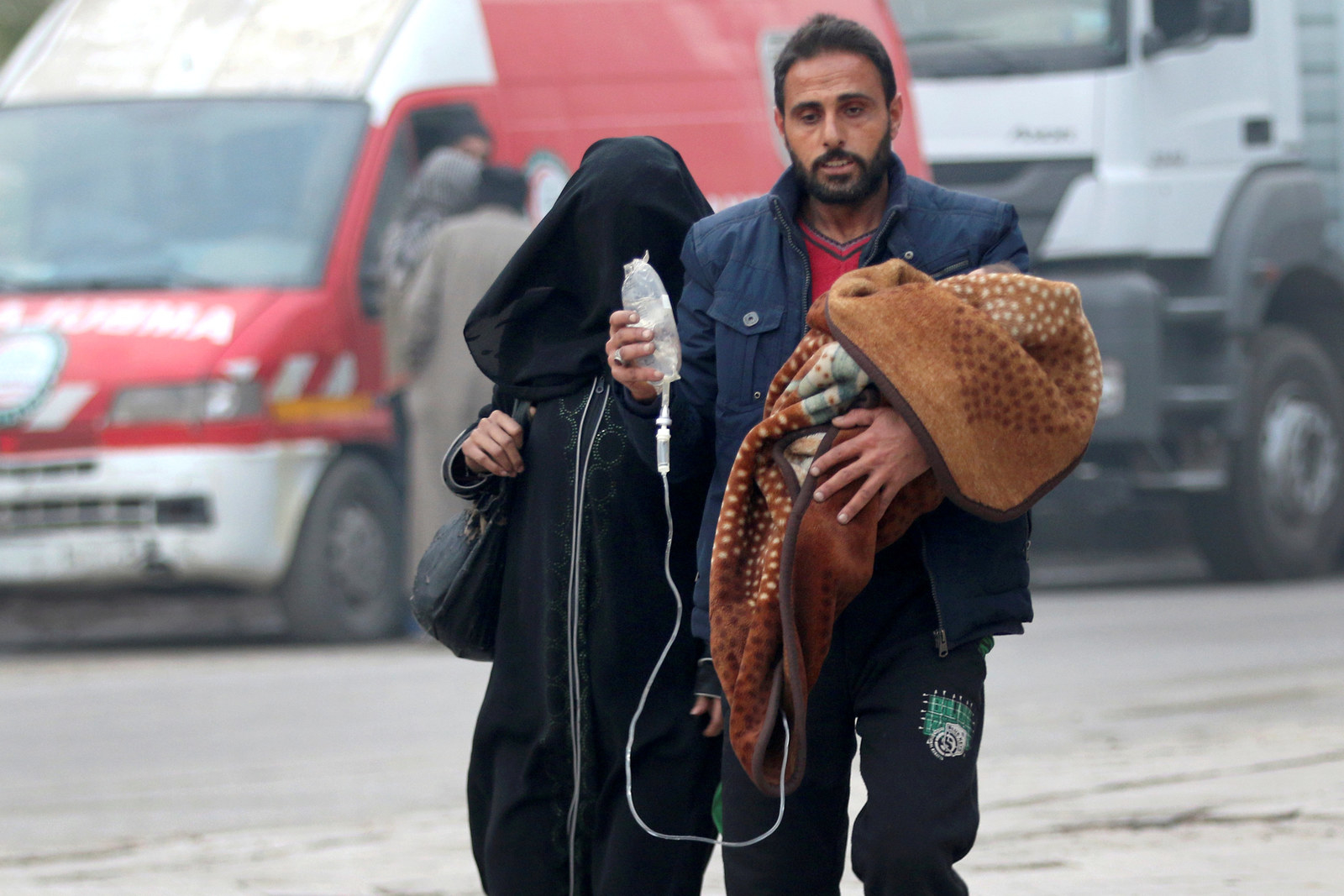
As the regime forces moved in on the city, Mahli, an activist, said he was packing up his hard drives and other equipment to consider attempting making a break for it, possibly leaving Aleppo for the countryside. “We are taking only the important things,” he said.
The Hezbollah commander who spoke to BuzzFeed News said some residents inside the besieged eastern half of the city were successfully finding their way to rebel-held territory in other parts of the country.
Despite the loss of eastern Aleppo, swaths of northern Syria remain under the control of rebels. An increasingly large stretch along the Turkish border has become a de-facto safe zone under the control of Ankara and its closest rebel allies. But jihadis in Idlib control a much larger area. The regime has already relocated Syrian rebels and opposition supporters from other parts of the country it has won to Idlib, which some fear will be the regime’s next target. “It’s going to be a disaster when they go to Idlib,” said Oliver. “It has more than 500,000 civilians. It will be a major crisis in the history of this very difficult revolution.”
Some analysts see in Aleppo’s fall a certain sign that Syria’s uprising against the Assad regime is coming to an end. Aron Lund, a researcher at the Carnegie Middle East Center, has written that the rebels have no good options after losing the city. “Without Aleppo, the Syrian opposition and its foreign backers will have no practical way forward against a regime that seems more safely embedded in the heartland of the country than at any point in the past five years,” he wrote.
Many diehard activists inside Aleppo agree. “Unfortunately the revolution is over,” said Mahli. “We wanted it to be a revolution but the reality says it's a civil war and implementation of foreign countries’ agendas on our land. We became an instrument for pressure in politics. Some people back up the Free Syrian Army, some the radicals, and others the regime.”
Not everyone is so negative. The armed opposition still controls parts of southern, central, and northern Syria as well as enclaves near the capital. Despite grim turns on the battlefield, they insist the original spirit of the peaceful protesters who took to the streets in 2011 against the Assad family’s five-decade tyranny remains alive.
“Of course, the revolution won't end with the fall of Aleppo,” Hadi Abdullah, a Syrian activist and journalist who recently fled Aleppo for Kafr Anbel in Idlib province, told BuzzFeed News. “The revolution is an idea, and ideas never die. The revolution isn’t land. The revolution is the blood of the martyrs. It’s the cry of those detained. We sacrifice each day for them. We will go on, even if the whole world stands against us.”
Asmaa al-Omar and Munzer al-Awad in Istanbul contributed to this report.

